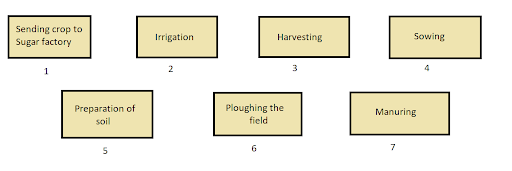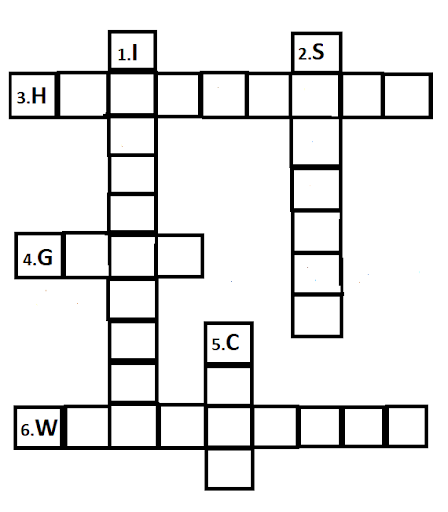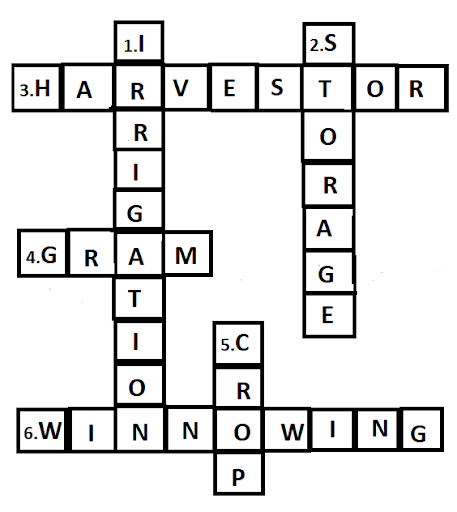Class 8 Science Chapter 1 Questions and Answers - Free PDF Download
FAQs on NCERT Solutions For Class 8 Science Chapter 1 Crop Production and Management (2025-26)
1. What stepwise approach is recommended for solving NCERT Class 8 Science Chapter 1 questions on crop production and management?
The recommended approach is to follow a step-by-step method as outlined in the NCERT Solutions:
- Read the question carefully and identify the specific crop production process involved.
- Break down the answer into steps such as soil preparation, sowing, adding manure or fertiliser, irrigation, weed control, and harvesting.
- Use correct scientific terminology and cite examples from the textbook.
- Support answers with clear, logical reasoning as per CBSE 2025–26 guidelines.
2. How do NCERT Solutions for Class 8 Science Chapter 1 help improve accuracy in solving textbook problems?
NCERT Solutions provide clear, stepwise explanations for each exercise, which guides students on the CBSE-approved method for solving science problems. Following these solutions helps avoid common mistakes, reinforces understanding of key concepts, and boosts confidence in exams.
3. How can students differentiate between manure and fertilisers using NCERT Solutions?
According to NCERT Solutions, manure is a natural substance made from decomposed plant and animal waste, enriching the soil over time. Fertilisers are commercially produced chemicals containing specific nutrients like nitrogen, phosphorus, and potassium for a rapid nutrient boost. The solutions explain this difference with examples and detailed comparisons as per the syllabus.
4. What process should be followed to answer application-based questions in Crop Production and Management using NCERT Solutions?
To answer application-based questions:
- Identify the scenario and which agricultural practice it relates to (e.g., what happens if wheat is grown in the Kharif season).
- Recall the conditions required for that practice, referencing facts from the textbook.
- Structure the answer to follow cause-effect reasoning as shown in NCERT Solutions for Class 8 Science Chapter 1.
- Finish with a conclusion supported with textbook logic.
5. What are the benefits of using stepwise methods as provided in NCERT Solutions for Class 8 Science Chapter 1?
Stepwise methods ensure that students address each part of an answer in the correct order, improve logical flow, help avoid missing key points, and align with CBSE marking schemes. This approach also helps in writing more accurate and complete answers during exams.
6. Why is soil preparation considered essential before sowing seeds, as explained in NCERT Solutions for Class 8 Science?
Soil preparation loosens and aerates the soil, allowing roots to penetrate deeply and absorb nutrients efficiently. The NCERT Solutions emphasise that proper preparation improves water absorption, incorporates organic matter, and ultimately increases crop yield as per CBSE standards.
7. How do the NCERT Solutions guide students in understanding crop rotation and sustainable agriculture?
The solutions explain that crop rotation involves growing different crops in the same field in alternating seasons. This practice:
- Prevents depletion of specific nutrients,
- Disrupts cycles of pests and diseases,
- Maintains soil fertility.
8. In the context of Class 8 Science Chapter 1, what is the correct way to solve matching and puzzle questions using NCERT Solutions?
First, study the definitions and examples provided in the solutions. For matching:
- Read both columns carefully,
- Use textbook examples to pair items correctly,
- Double-check by re-reading the related concepts as structured in the NCERT Solutions.
9. What errors must be avoided when answering NCERT Class 8 Science Chapter 1 questions, based on the solutions approach?
Avoid:
- Skipping steps in multi-step answers (e.g., missing out steps in crop production processes),
- Mixing up scientific terms (like confusing irrigation with fertilisation),
- Writing incomplete comparisons (especially for manure vs fertiliser, or Kharif vs Rabi crops).
10. How do students best use Class 8 Science Chapter 1 NCERT Solutions to improve their performance in exam-oriented descriptive questions?
Best practice is to study each model answer provided in the solutions, then practice writing the steps in their own words while retaining logical order and scientific vocabulary. Reviewing solution patterns helps format descriptive answers in alignment with board expectations.
11. Why is regular revision using NCERT Solutions critical for mastering Crop Production and Management?
Regular revision with NCERT Solutions helps reinforce fundamental concepts, provides repeated exposure to stepwise problem-solving, and ensures students do not omit steps when answering under exam pressure. This consistent practice leads to better retention and higher exam scores.
12. How can misconceptions about weed control be clarified using NCERT Solutions for Class 8 Science Chapter 1?
The solutions clearly state that weedicides are selective chemicals designed to target weeds only, not crop plants. Misconceptions, such as weedicides harming crops or manual weeding being always superior, are corrected through explanation and examples in the solution steps.
13. What is the role of technology in improving crop production methods as highlighted in the chapter's NCERT Solutions?
NCERT Solutions illustrate how tools like modern seed drills, harvesters, and irrigation systems (drip and sprinkler) increase efficiency, precision, and crop yield. The solutions compare traditional methods with modern technology, demonstrating clear advantages in accuracy and resource conservation.
14. How should students approach questions comparing Kharif and Rabi crops in accordance with the solutions methodology?
First, define each crop type with its relevant season. Then, list distinguishing features and give appropriate examples as per the solutions (e.g., Kharif: paddy, maize; Rabi: wheat, gram). Use structured tables or points to present a clear comparison as modelled in the NCERT Solutions.
15. What strategy does the NCERT Solutions recommend for managing questions on storage and post-harvest handling of grains?
The solutions recommend stating hygienic storage practices such as using clean, dry silos or granaries, regular inspection for pests, and fumigation. Answers should emphasise moisture control and safety measures to prevent food loss, following CBSE science protocols for the academic year 2025–26.





























